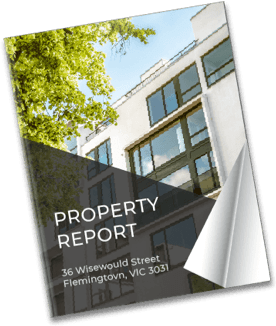This week I'm proud to be joined by Luke Traficante who is a financial consultant at TTS Lending.
With interest rates tipped to go up again by another 25 basis points at the beginning of October I wanted to see what he believes isthe best course of action is to take with your investment loan.
Luke you can start by telling us the service you provide people when it comes to them applying for a loan or re-financing another loan?
Thanks for having me Tim.
If a client approaches us applying for a loan, it’s our duty to inspect and perform an assessment on their financial position, we can then start navigating the best lenders and products offered on the market, and position the client with them.
To make it easier, we handle the paperwork, assessors and the people involved with the loan application process.
When the RBA puts interest rates up how long does it usually take for the banks to pass the rate on?
It does vary, sometimes it’s the next day, and in some cases such as this month, the week after. The principle seems to be the same however – second tier lenders generally wait for the tier or Big 4 banks to pass on their rate responses, before they apply theirown.
When lenders do pass on their rates, some will do it effective immediately,where as some give us a few days of grace before applying the higher rate.
The same generally applies when rates lower as well.
When taking a loan out for someone in this current climatewould you recommend that they fix it for a period or go for a variable rate?
The current climate is – in a word – volatile.
Lenders cautiously ensure their fixed rates carry a safe and calculated margin.
At the start of the year, when rates were expected to rise, Lenders instantly put their fixed rates up to mid 3 per cent, and in some cases, up to 4 to 5 percent.
I’ve discussed the prospects of fixed rates with my clients, and it is a bit of a gamble at this point.
For all we know at the moment, interest rates could be capped next month.Locking into a 6 percent fixed rate would be a very costly mistake
When it comes to burrowing capacity what interest rate do the banks ensure you wont have an issue paying? IE: if have no issues at thecurrent average rate at 5% will they assess you at 9-10 percent?
A rule of thumb is that lenders usually assess with an extra 3% on top of the applicable interest rate.
For example, if your rate is at 4%,the assessment rate will be at 7%.
This does vary from lender to lender, some may apply a higher assessment rate.
Where it does get more difficult, is that some lenders will apply an even higher rate on loans you already have.
I’ve had a few cases where lenders even apply a shorter term to those loans.
Some clients who took a loan out with a 30 year term earlier this year, were then assessed based on the loan automatically being 25 years. It can be difficult to navigate these fields without a broker.
Do you think that interest rates will continue to rise into next year?
It’s a tricky question to answer, if rates do continue to rise, I can’t see them rising at 50 basis points with each month. To curb inflation, there are reports already that suggest that consumer spending is decreasing at a steady rate. Should the RBA decide to increaseinterest rates, I would expect to see them at 25, 15 or 10 basis points steps instead of the larger 50 point jumps we have seen these past few months.
It’s been well documented that changesfrom interest rate rises aren’t felt for approximately 6 months after the rise.
We are now coming up to the 6month of consecutive interest raterises, but only time will tell when the RBA believes they have done enough tocurb our growth in inflation to the targeted 2-3 per cent.








